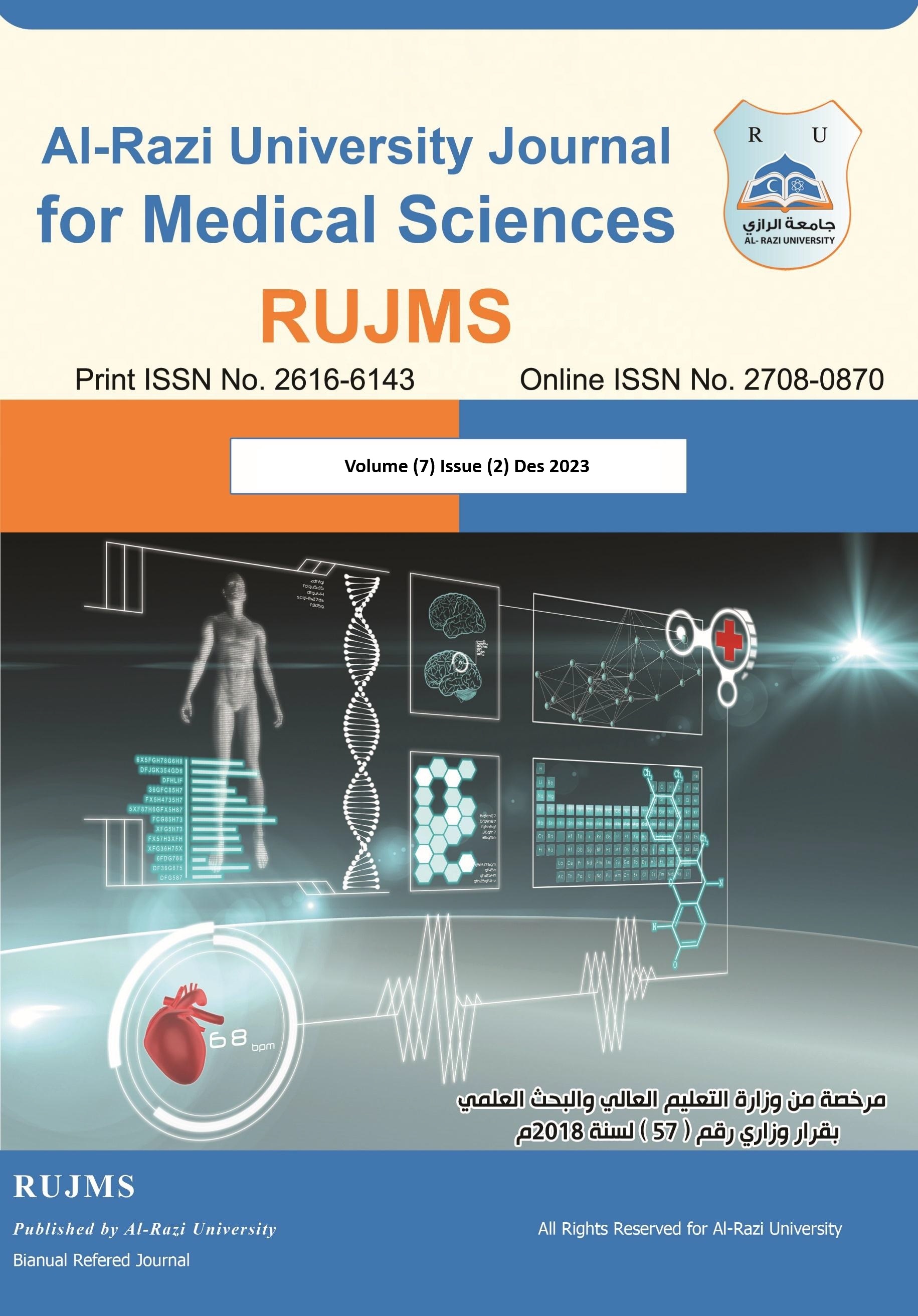Knowledge of Patients with Acute Myocardial Infarction toward Cardiovascular Risk Factors in Public Hospitals at Sana'a-Yemen
Abstract
Background: Globally, cardiovascular disease (CVD) poses a significant public health challenge. Evidence indicates that individuals with CVD have considerable knowledge gaps about cardiovascular risk factors. The aim of the study was to assess the knowledge of patients with acute myocardial infarction toward cardiovascular risk factors. Method: A descriptive cross-sectional study. Convenance sampling technique from January to March 30, 2023. The data was collected by using a closed-ended questionnaire with demographic data, medical history, and patients’ knowledge regarding different risk factors at a public hospital in Sana'a, Yemen. Results: A total of 178 patients were enrolled in the study. The mean age was 60.98 years, and 77.5% of patients were male. 53.9% of them live in rural areas, while 28.65% of patients are illiterate. Most patients had hypertension, and 51.1% of patients had a family history of diseases. The main risk factors for the occurrence of myocardial infarction are smoking (90.4%), hyperlipidemia (72.5%), and high blood pressure (61.2%). Overall knowledge of cardiovascular risk factors among patients was fair (52.2%), and 32.0% of them had poor knowledge, while 15.7% of patients had good knowledge. Age and educational level were significantly associated with knowledge of cardiovascular risk factors. Conclusions: Patients with myocardial infarction have a fair knowledge of the cardiovascular risk factors. We recommended that medical and nursing staff play a crucial role in this teaching process, and they should be encouraged to educate patients when providing health services regarding the development and progression of disease, predisposing factors, and prevention methods.

